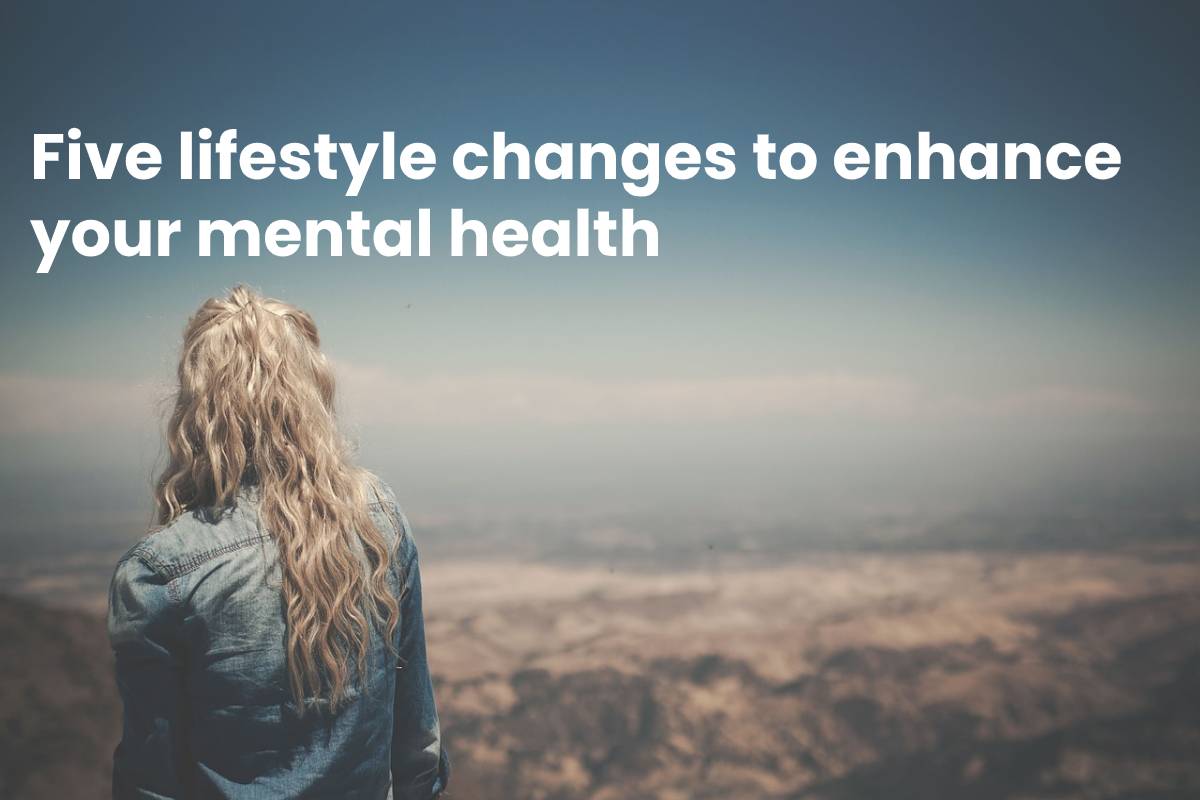Table of Contents
Five lifestyle changes
If someone is diagnosed with a mental health disorder such as depression or anxiety, first-line treatments usually include psychological therapy and medication. Here we will discuss five lifestyle changes that influence our mental health.
Even those without a mental health condition may still be looking for ways to further improve their mood, reduce stress, and manage their mental health daily.
It can be empowering to make positive changes in life. While time constraints and financial constraints may affect some people’s ability to make such changes, we all can make small, significant changes.
1. change your diet and start moving
Eat green leafy vegetables, legumes, whole grains, lean red meats, and seafood, which provide essential nutrients for optimal brain function. They contain magnesium, folate, zinc, and essential fatty acids.
Polyphenol-rich foods, such as berries, tea, dark chocolate, wine, and certain herbs, also play an essential role in brain function.
Many physical activities are potentially beneficial in exercising, swimming, running, lifting weights, or playing sports. Even taking a brisk walk or doing active housework is a positive step.
Activities that also involve social interaction, and exposure to nature can potentially increase mental well-being even more.
General exercise guidelines include at least 30 minutes of moderate activity on most days during the week (about 150 minutes total during the week). But even a short period of action can provide an immediate lift in mood.
2. Reduce your vices to improve your lifestyle
Managing problems like alcohol consumption or substance abuse is an obvious health recommendation. People with alcohol and drug problems are more likely than average to have a mental illness and have much lower health outcomes.
A few research has shown that a little alcohol consumption (mainly wine) can help prevent depression. However, other recent data have revealed that light alcohol consumption does not benefit brain function.
Quitting smoking is also an essential step since people addicted to nicotine are always at the mercy of a cycle of anxiety, which profoundly affects mood. It may take time to tackle nicotine withdrawal’s initial symptoms, but your brain chemistry will adjust in time.
Quitting smoking is associated with a better mood and less anxiety.
3. Prioritize rest and sleep
Sleep hygiene techniques improve sleep quality and help treat insomnia. They include adjusting your caffeine use, limiting your exposure to bed (regulating your sleep time and having limited time to sleep), and making sure you get up at a similar time in the morning
Some people are genetically prone to being more of a morning or evening person, so we need to have ideal flexibility (especially with work schedules).
It’s also important not to force sleep: if you can’t fall asleep in about 20 minutes, it’s better to get up and focus your mind on one activity (with minimal stimulation and light) until you feel tired.
The other pillar of better sleep is reducing exposure to light, incredibly blue light from laptops and smartphones, before sleeping. Hobbies can also improve mental health, especially if they involve physical activity.
4. Spend time with nature
Adequate exposure to sunlight helps levels of the mood-maintaining chemical serotonin. It also increases vitamin D, which also affects mental health, and benefits at the right time to regulate our sleep-wake cycle.
The benefits of sun exposure must be according to skin cancer risk, so consider the sun exposure recommendations.
Limit your exposure to toxins, chemicals, and environmental pollutants, including “noise” pollution, and reducing your mobile phone, computer, and television use if they are too much.
A solution to this can be spending time with nature. Studies show that time in the desert can improve self-esteem and mood.
Research suggests that owning a pet has many positive effects, and animal-assisted therapy (with horses, cats, dogs, and even dolphins) can also increase feelings of well-being.
5. Ask for help when you need it
Positive lifestyle changes are not a replacement for medication or psychological therapy, but rather something that people can take on top of their treatment.
While most lifestyle changes can be positive, some changes (such as avoiding junk food, alcohol, or quitting smoking) can be difficult psychological crutches. We need to handle them carefully and with professional support.
With that said, take a moment to reflect on how you feel mentally after a nutritious whole food meal, a good night’s sleep (no alcohol), or nature walk with a friend.


